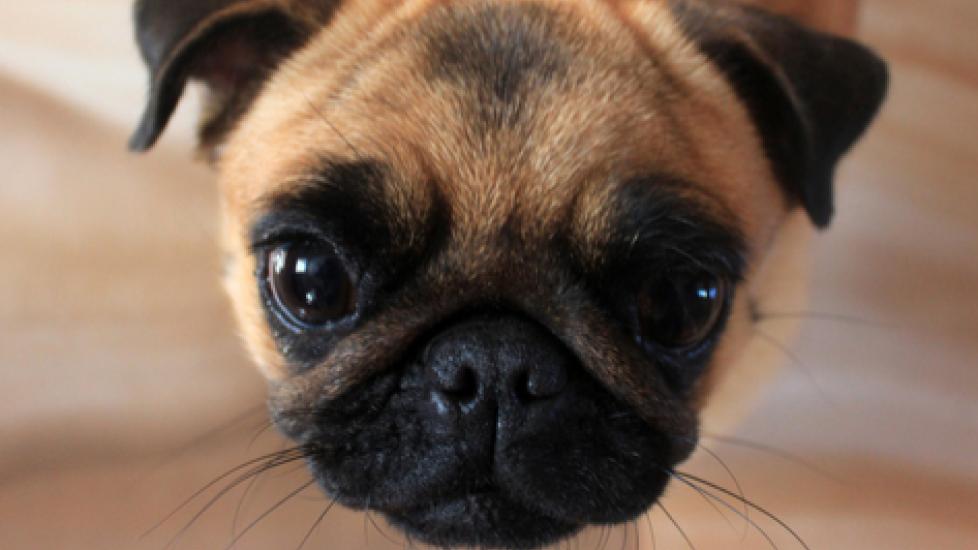In the world of canine companionship, every dog owner is on a constant quest to ensure their furry friend’s well-being. One common concern that often arises is whether a dry nose in dogs could be an indication of illness or something more serious. While it may seem like a trivial matter at first glance, understanding the potential implications behind your pup’s parched proboscis can lead to early detection and treatment if necessary. In this article, we delve into the mysteries of the dry doggy nose, exploring its various causes, symptoms, and preventive measures that pet parents should be aware of.
The Basics: What Causes a Dog’s Nose to Get Dry?
Dogs have evolved with wet noses due to their reliance on scent for survival—a moist surface captures odors better than a dry one would. However, there are several reasons why your beloved pooch might develop a Sahara-like schnoz:
- Environmental Factors: Exposure to extreme heat, cold, windy conditions, or low humidity can quickly dehydrate any living creature’s skin, including a dog’s delicate nasal membranes.
- Aging Process: Just as humans experience changes in skin texture over time, older dogs may find themselves with less moisture production throughout their bodies, including the nose area.
- Medical Conditions: Certain health issues such as allergies, infections (bacterial or fungal), autoimmune disorders, liver disease, or kidney failure can cause dehydration which leads to a drier nose.
- Nervous Behavior: Stressful situations can trigger excessive licking by anxious pups; frequent tongue action can inadvertently lead to drying out of the nostrils.
- Lack of Hydration: If your dog isn’t drinking enough water due to decreased thirst sensation associated with old age or other medical reasons, overall body fluids will decrease affecting all mucous membranes including those around the nose.
Signs Your Pet Might Be Sick Beyond Just A Dry Snout:
While not always present together, these additional signs alongside a dry nose could indicate underlying illnesses requiring veterinary attention immediately:
- Lethargy/fatigue
- Loss of appetite
- Diarrhea/vomiting
- Unexplained weight loss
- Changes in urination habits
- Swelling or discharge from eyes/ears/nose
Prevention & Management Tips For A Healthy Canine Nasal Cavity:
To keep your four-legged family member happy and healthy while maintaining that signature wet snoot:
- Keep Indoor Humidity Balanced: Using humidifiers during winter months when indoor heating dries out air significantly helps prevent cracking of sensitive skin surfaces across pets’ bodies.
- Monitor Outdoor Activities: Adjust outdoor playtime according to weather conditions so that Fido doesn’t overexert himself under harsh elements leading to dehydration internally reflected externally through his sniffer.
- Provide Adequate Water Intake: Make sure freshwater sources remain readily available at all times – both indoors where he spends most days relaxing but also outside especially after vigorous exercise sessions when thirst levels increase dramatically.
- Regular Health Check-Ups: Schedule routine vet visits even if no obvious problems exist because early diagnosis makes treatments more effective down the line saving lives potentially!
- Environmental Enrichment: Engage your dog mentally and physically through interactive toys, training exercises, and socialization opportunities to reduce stress and promote overall wellness.
- Use Natural Remedies Wisely: Some owners swear by natural remedies like coconut oil or aloe vera applied directly onto the nose to help moisturize without causing irritation. Always consult with a veterinarian before using any new products on your pet.
Conclusion:
A dry nose alone does not necessarily mean your dog is sick; however, it warrants close observation coupled with attentive caretaking practices mentioned above. By staying vigilant about changes in behavior along with regular physical examinations conducted by professionals trained specifically in animal medicine fields you’ll give yourself best chance possible spotting warning signals early allowing prompt intervention whatever form needed ensuring continued joy shared between human caretaker loyal hound alike!
